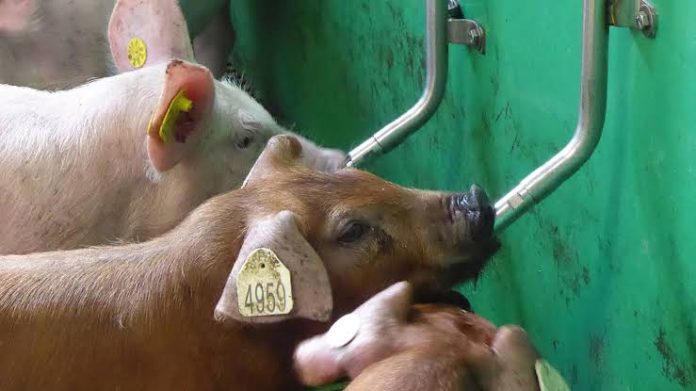The dynamics of water in pig farming business
Water management is crucial in pig farming for various reasons, including hydration, waste management, and disease prevention. Here are key dynamics to consider:
 Learn More
Learn More1. **Hydration and Growth:**
– Adequate water supply is essential for pig growth, feed digestion, and overall health. Pigs should have constant access to clean and fresh water to meet their hydration needs.
2. **Water Quality:**
– Monitor water quality regularly, checking for contaminants, pathogens, and ensuring proper pH levels. Clean water helps prevent diseases and supports optimal pig performance.
3. **Watering System Design:**
– Choose appropriate watering systems (nipple drinkers, bowls, etc.) based on the age and size of the pigs. Ensure that the system is functioning well, and clean water is easily accessible to all pigs in the pen.
4. **Temperature Regulation:**
– Pigs regulate body temperature through water consumption, especially in hot weather. Ensure water availability to prevent heat stress, and consider providing cooling systems or mud wallows.
5. **Waste Management:**
– Manage manure and wastewater to prevent contamination of water sources. Implement proper drainage systems and consider waste treatment options to minimize environmental impact.

6. **Biosecurity Measures:**
– Implement biosecurity practices to prevent the spread of diseases through water sources. Avoid using water from questionable or unapproved sources and regularly clean waterers to reduce disease risks.
READ ALSO Causes of Vomiting in Pigs and Treatments
7. **Water Conservation:**
– Implement water conservation practices, especially in regions with water scarcity. Efficient watering systems and proper water usage can contribute to sustainable pig farming.
8. **Stocking Density:**
– Avoid overstocking to prevent excessive waste production and competition for water. Maintaining an appropriate stocking density helps ensure that each pig has access to an adequate water supply.
9. **Disease Prevention and Vaccination:**
– Vaccinate pigs against common diseases and implement a health management program. Proper hygiene and water sanitation are critical components of disease prevention in pig farming.
10. **Watering Schedule:**
– Establish a regular watering schedule to ensure consistent water availability. Pigs tend to drink more during feeding times, so align watering schedules with feeding routines.
READ ALSO 9 management practices for pig farming business
11. **Emergency Preparedness:**
– Have contingency plans for water shortages or emergencies. Ensure access to backup water sources and have a plan in place to address water-related issues promptly.
ATTENTION: Click “HERE” to join our WhatsApp group and receive More updates directly on your WhatsApp!
Effective water management in pig farming involves a comprehensive approach that considers water quality, quantity, and environmental factors. Regular monitoring, hygiene practices, and preventive measures are essential for maintaining a healthy and productive pig farming operation.
🧩CREATED BY DR JOSEPH DEJI-FOLUTILE















